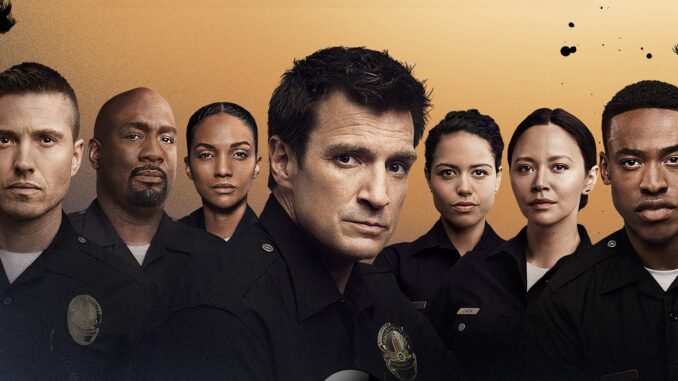
The Unscuffed Sole: The Real Reason New Officers Are Nicknamed "Boots" on The Rookie
On the popular police procedural The Rookie, the term "Boots" isn't merely a casual epithet for the show's fresh-faced recruits; it’s a meticulously chosen nickname, laden with metaphorical significance that encapsulates the complex journey of a new officer. While superficially denoting their "boot camp" origins and literal presence on the streets, the true genius of the moniker lies in its profound allusions to vulnerability, the arduous process of "breaking in," and their foundational, yet often overlooked, role in the vast machinery of law enforcement. It's a label that marks them as essential, yet incomplete, still malleable to the harsh realities of the job.
At its most immediate, "Boots" signifies utter newness, an unblemished quality akin to pristine, unscuffed footwear. Just as a brand-new pair of boots might feel stiff and unfamiliar, the rookies on the show—John Nolan, Lucy Chen, Jackson West—enter the LAPD with an almost childlike naiveté, a theoretical understanding of policing divorced from its gritty, unpredictable application. They are the uninitiated, their ideals untarnished by the grim realities they are about to face. This fresh quality makes them inherently vulnerable. Like new boots prone to tripping or easily scuffed on unyielding pavements, these officers are susceptible to making mistakes, falling victim to manipulative suspects, or being overwhelmed by the sheer scale of human suffering and depravity they encounter. Their idealism, while admirable, can be a liability, making them targets for the hardened criminals and jaded veterans alike. Their "newness" isn't just a state of being; it’s a glaring vulnerability.
Beyond mere novelty, "Boots" speaks to the literal and figurative groundwork these officers perform. They are the "boots on the ground," the essential first responders, often tasked with the least glamorous yet most vital duties. They walk the beats, respond to the mundane domestic disputes and the chaotic crime scenes alike, gather the initial evidence, and navigate the labyrinthine paperwork. They are the eyes and ears, the hands and feet of the police department, the visible embodiment of law and order in the community. This essential, yet often low-status, role mirrors the function of actual boots: indispensable for movement and protection, but rarely the celebrated part of the uniform. They get dirty, they endure wear and tear, and they are the unsung heroes doing the tireless legwork that keeps the system functioning. Their nickname acknowledges their indispensable utility while simultaneously highlighting their position at the bottom of the hierarchical ladder.
Perhaps the most profound layer of the "Boots" metaphor lies in the arduous process of "breaking them in." Just as new boots must be worn, stretched, and molded to the wearer’s foot, often causing blisters and discomfort along the way, new officers must endure a grueling period of adaptation. This involves not just learning the procedural rules but internalizing the unspoken codes of conduct, developing intuition, and building resilience against the psychological toll of the job. For Nolan, it's shedding the veneer of his middle-aged optimism; for Chen, it's finding her voice and confidence; for West, it's learning to bend the rules for justice rather than strictly adhering to them. Their training officers, like Tim Bradford and Angela Lopez, act as the abrasive yet necessary tools in this breaking-in process, pushing their rookies to their limits, forcing them to confront their fears, and shaping them into officers capable of surviving the streets. The "pain" of this breaking-in period—the mistakes, the close calls, the emotional scars—is what ultimately transforms them from mere "Boots" into seasoned, reliable, and comfortable instruments of justice.
In conclusion, the nickname "Boots" on The Rookie is far more than a simple identifier for new officers; it is a resonant symbol of their initial vulnerability, their crucial yet uncelebrated role as the foundational elements of law enforcement, and the transformative, often painful, journey of becoming a seasoned protector of the peace. It captures the essence of a raw recruit, fresh from the academy, stepping onto the unforgiving pavement of real-world policing—unscuffed, uninitiated, and awaiting the inevitable wear and tear that will ultimately shape them into the indispensable, resilient officers they are destined to become.